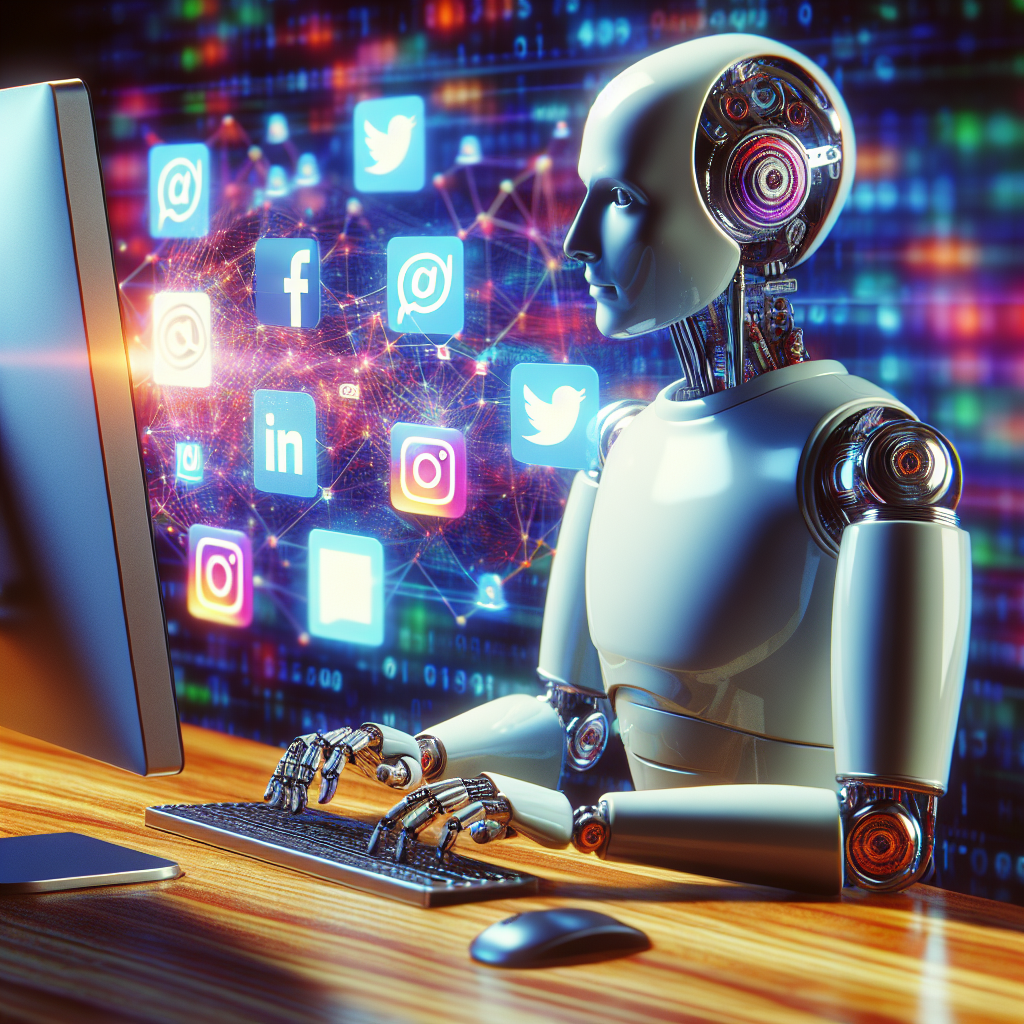Social media has revolutionized the way we communicate, connect, and interact with each other. With over 3.6 billion people using social media worldwide, it has become a powerful tool for businesses, brands, and individuals to reach their target audience and engage with them in real-time. However, with great power comes great responsibility, and social media also presents unique challenges when it comes to crisis management and response.
In today’s hyper-connected world, news spreads fast, and a crisis can escalate within minutes on social media platforms. Whether it’s a negative review, a customer complaint, a product recall, or a PR disaster, brands need to be prepared to respond quickly and effectively to protect their reputation and minimize damage. This is where artificial intelligence (AI) comes into play.
The Role of AI in Social Media Crisis Response
AI has the ability to process huge amounts of data at lightning speed, identify patterns and trends, and provide actionable insights in real-time. When it comes to social media crisis response, AI can be a game-changer in several ways:
1. Monitoring and Detection: AI-powered tools can monitor social media platforms 24/7, scanning for keywords, mentions, and trends that could indicate a potential crisis. By using natural language processing (NLP) and sentiment analysis, AI can identify posts that are negative, inflammatory, or potentially harmful to a brand’s reputation. This proactive approach allows companies to detect and address issues before they escalate.
2. Automated Responses: AI can be used to draft and send automated responses to common customer queries and complaints. By using chatbots and virtual assistants, brands can provide instant support and information to customers, even during a crisis. This helps to manage the volume of incoming messages and ensure a consistent and timely response across all channels.
3. Predictive Analytics: AI can analyze past data and predict future trends, helping brands anticipate and prepare for potential crises. By identifying patterns in customer behavior, social media engagement, and market trends, AI can help companies develop proactive strategies to mitigate risks and prevent crises from occurring in the first place.
4. Reputation Management: AI can monitor brand mentions and sentiment across social media platforms, news sites, blogs, and forums, providing real-time insights into public perception and sentiment. By tracking brand sentiment and identifying influencers and key stakeholders, companies can tailor their crisis response strategies and messaging to address specific concerns and build trust with their audience.
5. Crisis Response Planning: AI can assist companies in developing crisis response plans, simulations, and training programs. By analyzing past crises and assessing the effectiveness of different strategies, AI can help companies identify gaps in their crisis management processes and develop more robust and effective response plans.
FAQs
Q: Can AI completely replace human intervention in social media crisis response?
A: While AI can automate many aspects of social media crisis response, human intervention is still essential. AI can analyze data, identify trends, and provide insights, but it lacks the emotional intelligence, empathy, and creativity that are necessary to effectively manage a crisis. Human judgment and decision-making are crucial in determining the appropriate response, tone, and strategy in a crisis situation.
Q: How can companies ensure the ethical use of AI in social media crisis response?
A: Companies should establish clear guidelines and protocols for the use of AI in crisis response, including data privacy, transparency, bias prevention, and accountability. It’s important to regularly review and audit AI algorithms to ensure they are fair, unbiased, and compliant with ethical standards. Companies should also provide training and support to employees using AI tools to ensure they understand how to use them responsibly and ethically.
Q: What are some examples of successful AI-powered social media crisis response?
A: Several companies have successfully used AI to manage social media crises. For example, Starbucks uses AI-powered sentiment analysis to monitor social media conversations and identify potential issues before they escalate. Airbnb uses chatbots to provide instant support to hosts and guests during crises, such as natural disasters or property damage. Coca-Cola uses AI to analyze customer feedback and sentiment to improve product development and marketing strategies.
In conclusion, AI has the potential to transform social media crisis response by enabling companies to detect, analyze, and respond to crises in real-time. By harnessing the power of AI, companies can proactively manage reputational risks, engage with customers effectively, and build trust and loyalty with their audience. However, it’s important for companies to use AI responsibly, ethically, and in conjunction with human intervention to ensure a comprehensive and effective crisis response strategy.

